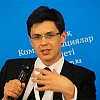Global Issues Overweigh the Allies
(no votes) |
(0 votes) |
Ph.D., Director General of Center for Study of Integration Prospects, Editor-in-Chief, RuBaltic.Ru, RIAC Expert
On November 30, 2016, the President of Russia Vladimir Putin signed Executive Order approving the Foreign Policy Concept of the Russian Federation. This wasn’t unexpected—the Minister of Foreign Affairs Sergey Lavrov spoke about the preparation of the document in the spring. As the minister promised, the new concept, as prepared within his office, has turned out to be more global than its predecessor. The first pages of the document highlight the idea that the modern world is going through a period of sweeping changes, aimed at multipolar international system formation.

Photo: cont.ws
The paragraphs on the post-Soviet space didn’t undergo any sufficient changes even though there have been serious changes in the region since February 2013, when the previous foreign policy concept of Russia was signed. The key changes apply to Ukraine, which is clear. Since what was stated in the concept that was still in effect for three years after the Maidan events, «developing relations with Ukraine as a priority partner within the CIS and contributing to its participation in extended integration processes» would now sound at the very least weird.
At the same time, there is no more attention given to allies in the new concept either. They are mostly viewed in terms of integration projects in the post-Soviet space. The first ally mentioned is Belarus, as a strategic partner for cooperation within the Union State. An equally important ally, Kazakhstan, is mentioned only as a partner-state in a different regional integration project—the Eurasian Economic Union. While assistance in the development of Abkhazia and South Ossetia, as well as Georgia, for instance, appears in a separate paragraph, since Russia is interested in the normalisation of relations…in the areas Georgia is eager to normalise them.
Generally, it is obvious that the new foreign policy concept is focused on global issues over developing the international relations architecture as well as the hazards related thereto. Given the situation, this fact is not surprising. Though if the post-Soviet region (with the exception of the Baltic states, being traditionally ignored in recent years in the strategic documentation of the Russian Ministry of Foreign Affairs) is qualified as a priority area, the countries within should have been given more attention. And if this doesn’t fit in the foreign policy concept outline, then the presidential decree on the Russian Federation and the CIS member-states strategic course should be updated. This document was signed in 1995 by a different president and almost none of the current post-Soviet region integration projects existed—even the Union State, which is expected to develop the strategic relations with Belarus.
(no votes) |
(0 votes) |




